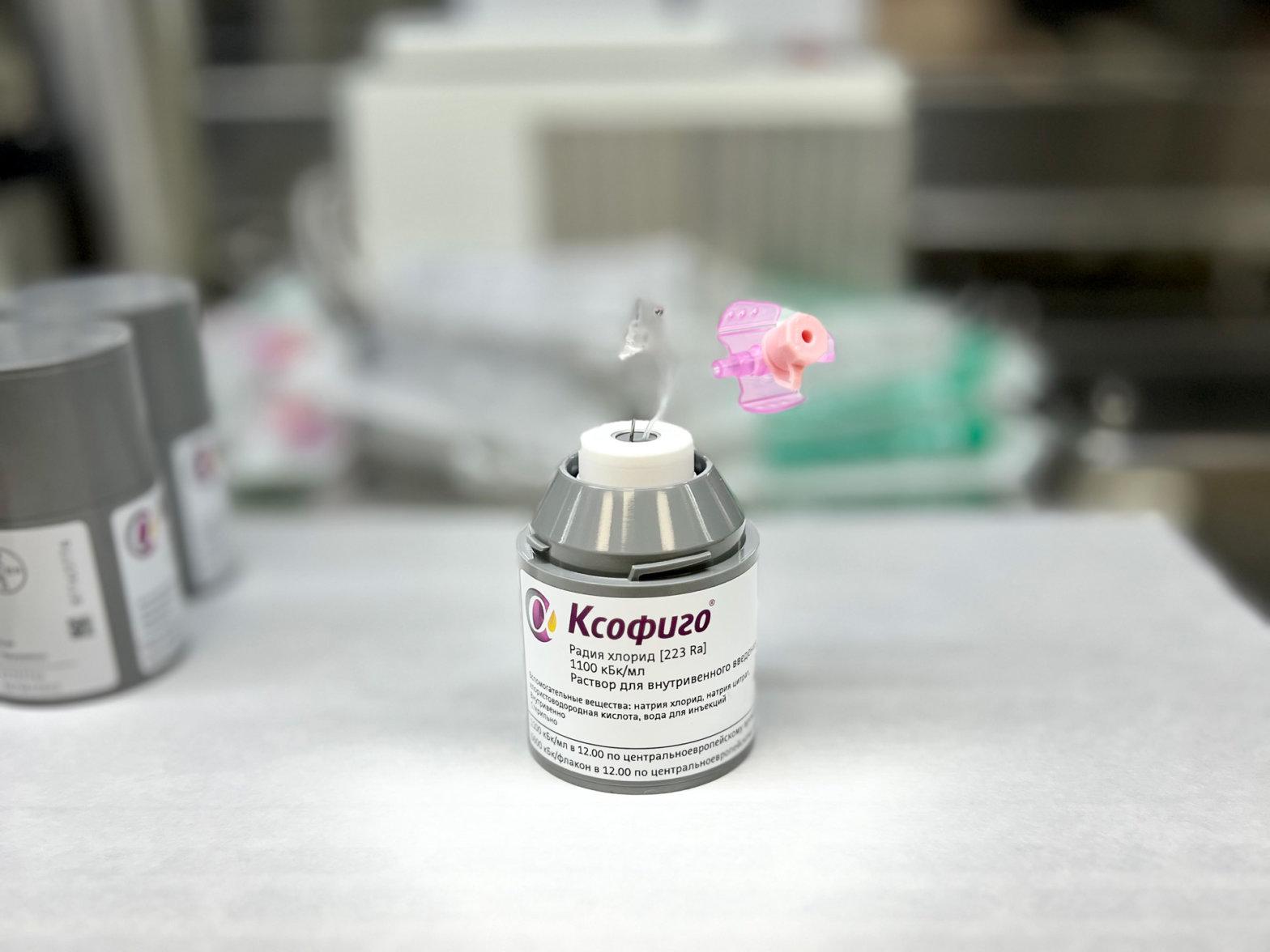
Radionuclide Therapy with Radium-223 Chloride
Radium-223 chloride is used for radionuclide therapy in patients with bone metastases from castration-resistant prostate cancer (CRPC). Bone metastases from prostate cancer are often accompanied by an increase in bone mineralization. As a chemical analog of calcium, radium-223 chloride actively accumulates in areas of high bone mineralization, exerting an antitumor effect. The therapeutic effect of radium-223 chloride is achieved through the emission of alpha particles. The high linear energy transfer (LET) of alpha particles (80 keV/µm) results in a high frequency of double-stranded DNA breaks, leading to a strong cytotoxic effect. The range of action of radium-223 chloride alpha particles is less than 100 microns (less than ten cell diameters), which minimizes damage to healthy surrounding tissues.
To achieve the maximum therapeutic effect of radium-223 chloride, it is necessary to complete a full course, which includes six injections at 28-day intervals. If clinically significant adverse events occur, the inter- injection intervals can be extended to eight weeks to manage these events and assess the safety of continuing therapy. Additionally, in cases of confirmed clinically significant progression of CRPC, the treatment with radium-223 chloride may be interrupted.
How to Obtain Radionuclide Therapy with Radium-223 Chloride at the MORI
Radionuclide therapy with radium-223 chloride is available either through Compulsory Medical Insurance or at the patient’s expense.
To explore the possibility of radionuclide therapy with radium-223 chloride, the patients should contact the call center of the NMRRC at +7 (495) 150-11-22 and schedule a consultation with an oncologist.
To receive a consultation, patients must provide medical documentation that includes up-to-date information regarding treatment received and the results of medical examinations conducted within the 30 days prior to the consultation:
- Complete blood count (including absolute neutrophil count, platelet count, and hemoglobin level);
- Blood biochemistry panel (including creatinine, ALT, and AST levels);
- Blood tests for PSA and testosterone levels;
- Chest, abdomen, and pelvis CT with IV contrast media (if there are no contraindications) or PSMA PET/CT (preferably, can be performed at the MORI’s Department of Nuclear Medicine);
- Bone scan (can also be performed at the MORI’s Department of Nuclear Medicine)
If you have any questions related to radionuclide therapy with radium-223 chloride, please contact the Department of Nuclear Medicine at +7 (495) 945-87-18 or rnt@nmicr.ru.
About Department
The Department of Nuclear Medicine performs studies on patients with cancer, as well as those endocrinologic, urologic and cardiologic diseases.
A wide range of nuclear medicine studies is performed daily, half of which are hybrid studies, such as SPECT/CT and PET/CT. Patients can receive expert consultations both in person and through telemedicine technologies.
Physicians of the department have extensive experience in the field of nuclear medicine and hybrid imaging. They actively participate in the scientific work of the NMRRC, are members of Russian and foreign scientific societies, and regularly make presentations on topical issues of nuclear medicine application in oncology. Thanks to the initiative of the department’s physicians, the topic of quantitative PET harmonization – requiring a multidisciplinary approach involving both nuclear medicine physicians and medical physicists – has begun to develop in the Russian Federation.
Patients are provided with comfortable conditions for their stay in the department; a favorable and friendly atmosphere is maintained by the coordinated work of not only physicians, but also secondary medical personnel.




